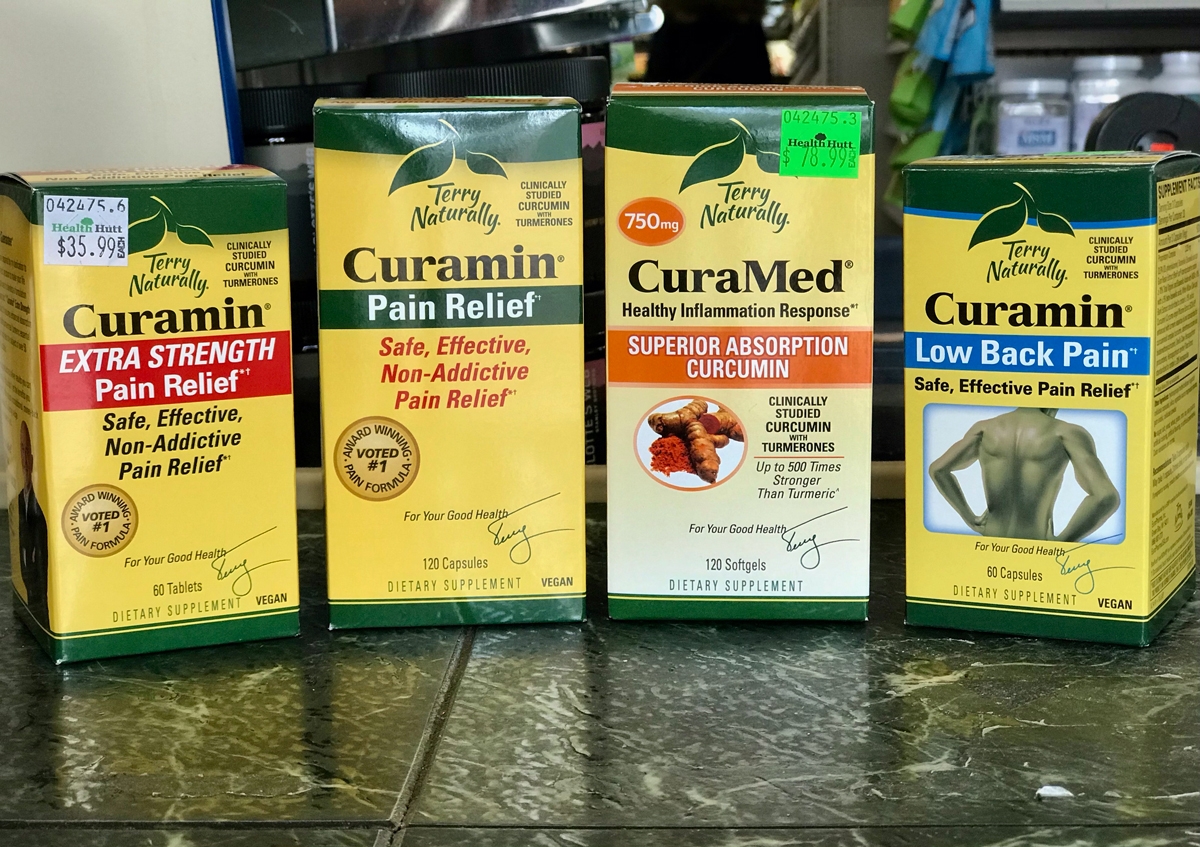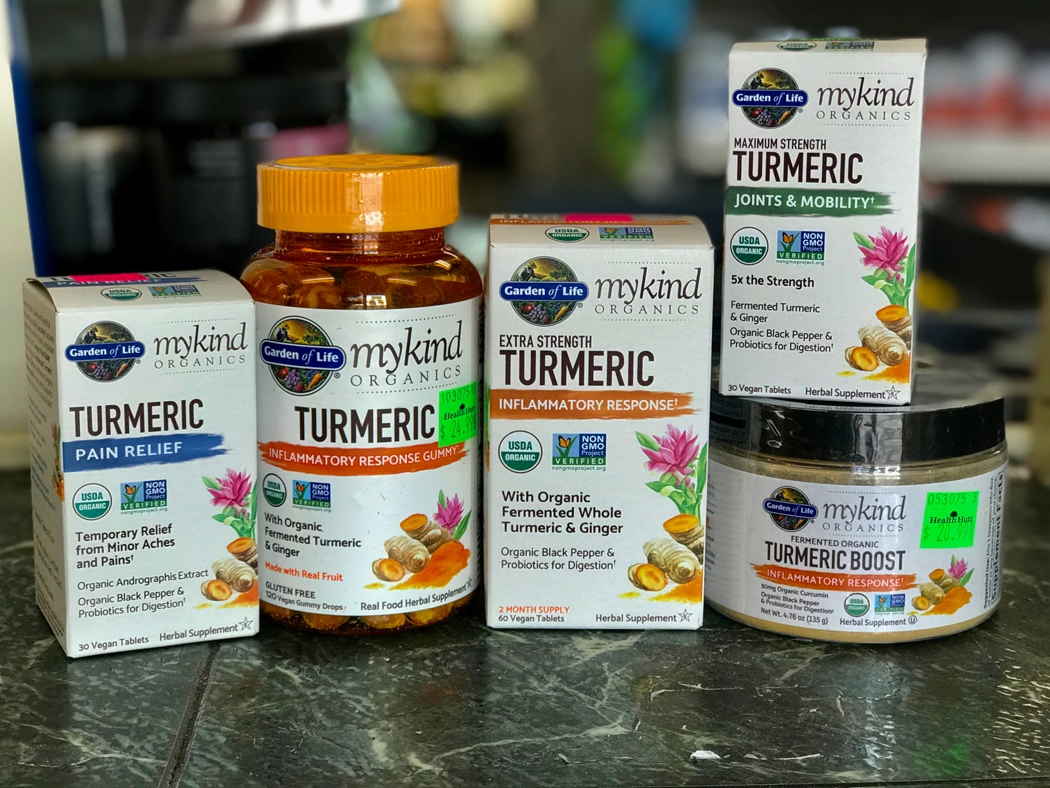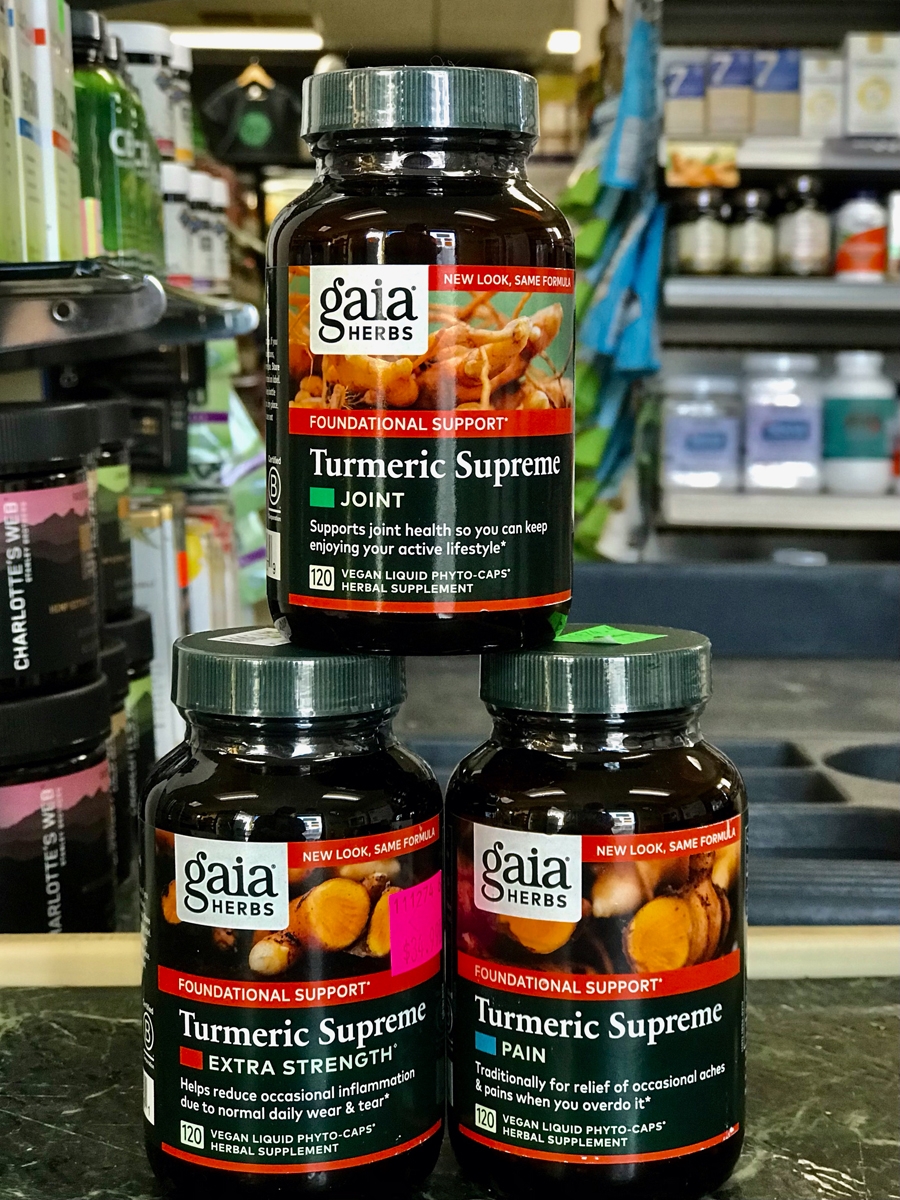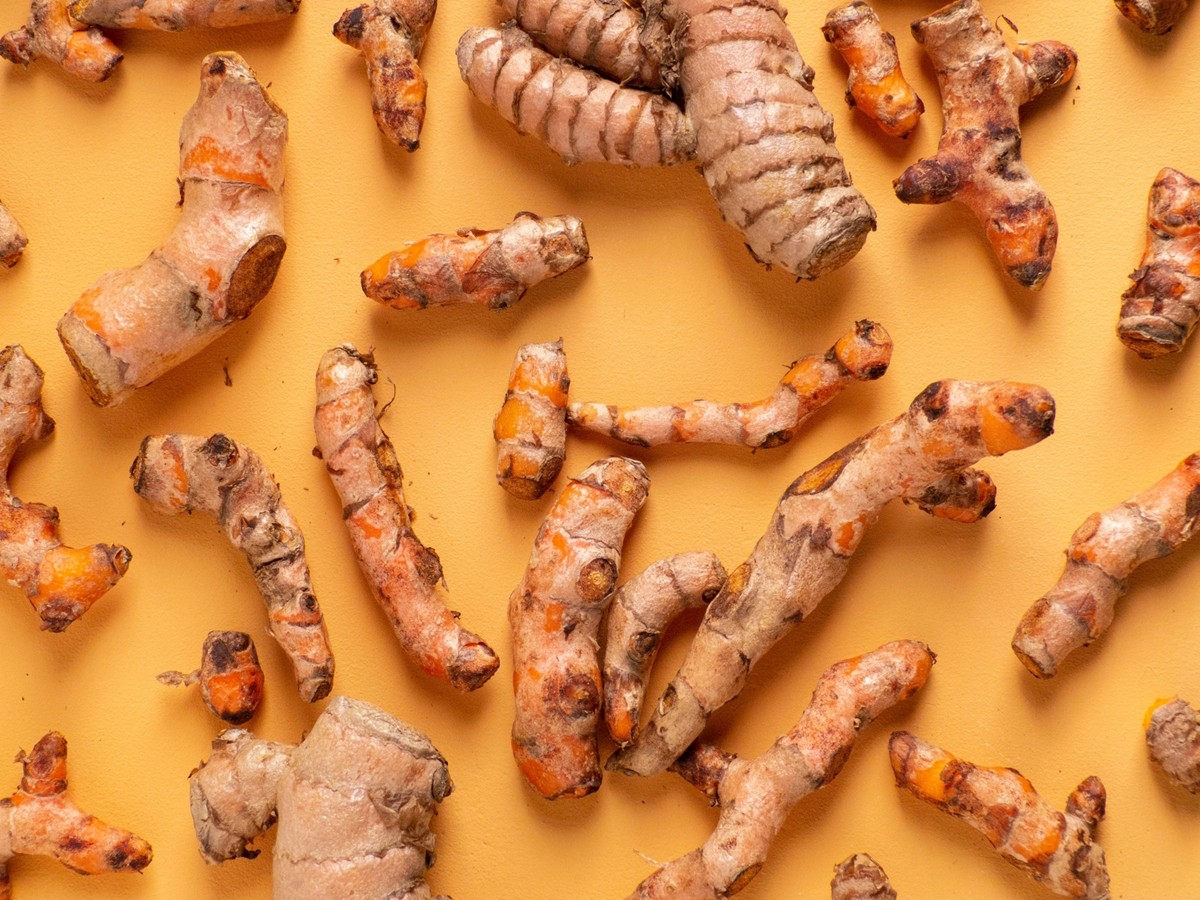Turmeric has become known for its anti-inflammatory and antioxidant actions, and curcumin is now a popular supplement. Research is showing the anti-inflammatory powers of curcumin to be quite impressive!
You may have encountered turmeric in a curry flavor, Indian dishes, or ‘golden milk’. Turmeric is a root in the ginger family that has been utilized as a culinary spice and traditional medicine. Ayurveda practitioner Dr. Vasant Lad wrote in his book Ayurveda: The Science of Self Healing that turmeric has the following functions:
- Blood purifier
- Tonic that aids digestion and relieves congestion
- Soothing for respiratory ailments (cough and asthma)
- Anti-arthritic
- Anti-bacterial
In traditional medicine, turmeric and its anti-inflammatory properties are also used topically for abrasion, bruises, and swelling and as a gargle for sore throat.
Curcumin is a primary active component and yellow pigment in turmeric (Curcuma longa plants). Curcumin is believed to have generalized protective properties, including anti-inflammatory, antioxidant and antitumor. (3) As an antioxidant, curcumin protects the cell membrane against perioxidative damage mainly through the scavenging of free radicals. (3)
Curcumin has a powerful effect in the body’s anti-inflammatory response on the level of known steroidal drugs.(3) Studies show that curcumin’s ability to lessen oxidative stress and immense anti-inflammatory power has promising effects on many diseases including atherosclerosis, cancer, diabetes, neurodegenerative disease, rheumatoid arthritis, liver fibrosis, psoriasis, and autoimmune diseases.(3)
For example, in addition to improving symptoms of patients with osteoarthritis, curcumin may also slow progression of the condition via anti-inflammatory action and decreasing the degradation of cartilage and bone. (1) In a study by Nakagawa et al, curcumin was effective for treating knee osteoarthritis in just over 75% of 45 patients who took 180 mg of curcumin daily for 6 months. (2)
Curcumin has been shown to be a chemopreventative agent against different cancers. Curcumin was found to have an effect on the suppression of TNF production. TNF, or tumor necrosis factor, has been shown to mediate tumor beginning, promotion and metastasis. Curcumin inhibits the expression of TNF mRNA and TNF protein in cell lines. (3) Overall, curcumin has a protective role against inflammatory diseases by suppressing inflammatory mediators. (3)
In the past, use of curcumin was limited by its bioavailability. (2) Many companies have developed products to help curcumin be more available to the body.



Feature photo of turmeric by FOODISM360 on Unsplash
- Akuri, M. C., Barbalho, S. M., Val, R. M., & Guiguer, E. L. (2017). Reflections about Osteoarthritis and Curcuma longa. Pharmacognosy reviews, 11(21), 8–12. https://doi.org/10.4103/phrev.phrev_54_16
- Nakagawa, Y., Mukai, S., Yamada, S., Murata, S., Yabumoto, H., Maeda, T., & Akamatsu, S. (2020). The Efficacy and Safety of Highly-Bioavailable Curcumin for Treating Knee Osteoarthritis: A 6-Month Open-Labeled Prospective Study. Clinical Medicine Insights: Arthritis and Musculoskeletal Disorders. https://doi.org/10.1177/1179544120948471
- Venugopal P. Menon, Adluri Ram Sudheer. Antioxidant and Anti-Inflammatory Properties of Curcumin. The Molecular Targets and Therapeutic Uses of Curcumin in Health and Disease. Advances in Experimental Medicine and Biology. (595, 105-125). Springer. URL
